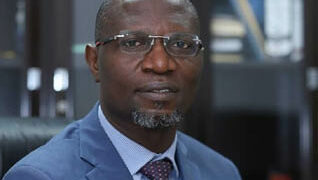As Nigeria rapidly advances its artificial intelligence (AI) capabilities, Schneider Electric has urged the alignment of Nigeria’s artificial intelligence (AI) ambitions to achieve net-zero greenhouse gas emissions by 2060.
Ajibola Akindele, Country President of Schneider Electric Nigeria, explained that AI technologies, while transformative, come with significant energy demands. “Artificial intelligence drives innovation and growth across critical sectors such as healthcare, agriculture, education, and manufacturing.
“However, it is important to recognize that running AI systems particularly data centres, servers, and networking equipment, requires substantial amounts of electricity. These systems often operate around the clock, consuming large quantities of power and generating carbon emissions if supplied by non-renewable sources,” he said.
In addition to operational energy consumption, the manufacturing of AI hardware components including semiconductors, chips, and processors demands vast resources and energy, contributing further to greenhouse gas emissions.
Vice president, Services, Schneider Electric, Nnadozie Ogbuehi, said “The growing energy requirements for AI risk placing additional strain on Nigeria’s already fragile energy infrastructure, which predominantly depends on fossil fuels. Without a decisive transition to renewable energy, this expansion could jeopardize the country’s progress toward its net-zero goals.”
Nigeria’s commitment to reducing emissions aligns with global climate goals and opens avenues for international support and investments in green projects. “Achieving net-zero is not just an environmental imperative but also an economic opportunity. It positions Nigeria to attract financing and partnerships that can accelerate job creation and sustainable development,” Ajibola Akindele noted.
The Nigerian digital economy is projected to reach $88 billion by 2030, with AI playing a pivotal role. Leading Nigerian companies and startups are leveraging AI to improve productivity, from aggrotech platforms that support farmers with precision agriculture to healthcare technologies that enhance diagnostics and patient care. Yet the environmental footprint of these technologies must be managed responsibly.
Schneider Electric is actively supporting Nigerian businesses in adopting energy-efficient digital infrastructure, including smart power management, renewable energy integration, and sustainable cooling systems for data centres. “Our goal is to enable the development of AI ecosystems that are both innovative and sustainable,” Nnadozie said.
To achieve this balance, the company is calling on policymakers and industry stakeholders to implement regulations that encourage energy-efficient AI technologies, promote renewable energy use, and incentivize green investments. These measures include setting energy performance standards for data centres, encouraging the use of low-power computing algorithms, and supporting infrastructure development that aligns with global sustainability benchmarks.
Ajibola Akindele concluded, “Innovation and sustainability must go hand in hand. Nigeria has a unique opportunity to become a leader in AI innovation in Africa while setting an example for responsible energy use. With collaborative efforts between government, industry, and investors, we can build a smarter, greener future for all Nigerians.”











